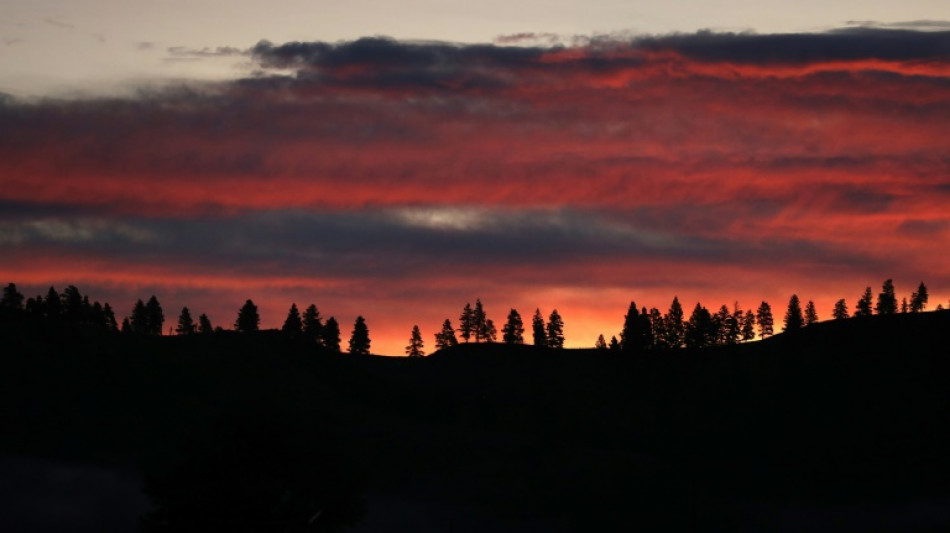Historic US climate trial may conclude Tuesday / Photo: CHIP SOMODEVILLA - GETTY IMAGES NORTH AMERICA/AFP/File
A landmark US climate trial involving 16 young people who accuse Montana of violating their rights to a "clean and healthful environment" is expected to conclude on Tuesday, an organization representing the plaintiffs said.
The case, Held v. Montana, is being closely watched as it could bolster similar proceedings across the country, with most previous suits dismissed before being heard.
It is the first involving a constitutional claim against a state, and represents a rare instance in which climate experts have been questioned on the witness stand.
Our Children's Trust, one of three organizations representing the youths, said "the state is expected to rest their case in the morning, followed by closing arguments."
The trial began on June 12 and was set to run until June 23, but Montana declined to call to the stand its single climate science witness, Judith Curry, its only mental health witness, and others.
Curry is known in the scientific community as a climate contrarian, who has called into question the accuracy of climate forecast models.
The 16 youths, ranging in age up to 22, have said they have been harmed by the "dangerous impacts of fossil fuels and the climate crisis," with children "uniquely vulnerable" to its worsening impacts.
At the heart of the case is a provision within the fossil fuel friendly state's constitution that says: "The state and each person shall maintain and improve a clean and healthful environment in Montana for present and future generations."
The plaintiffs are not seeking financial compensation, but rather a declaration that their rights are being violated.
Specifically, they are challenging the constitutionality of a provision in the Montana Environmental Policy Act (MEPA), which prohibits government agencies from considering climate impacts when reviewing permitting applications from fossil fuel interests.
The trial saw emotive testimony from the plaintiffs about how they had been directly impacted by climate change.
Lead plaintiff Rikki Held, whose family run a ranch in Montana, told the court in at times emotional testimony that their livelihoods and wellbeing had been increasingly impacted by wildfires, extreme temperatures and drought.
The state is also experiencing loss of biodiversity and the rapid melting of its iconic glaciers in Glacier National Park.
Michael Gerrard, founder of the Sabin Center for Climate Change Law at Columbia University, told AFP: "I thought that the testimony was very effective. The young people did a terrific job as did their lawyers."
"If it's successful, it may inspire more cases, but of course, it's most likely to be in states that have environmental rights in their constitutions, and there are only about half a dozen of those."
The defense's response has focused on questioning both climate science, as well as Montana's specific contribution to a global problem.
Montana releases around 166 million tonnes of carbon dioxide into the atmosphere annually -- equivalent to the countries of Argentina, the Netherlands, or Pakistan.
G.Tara--BD
